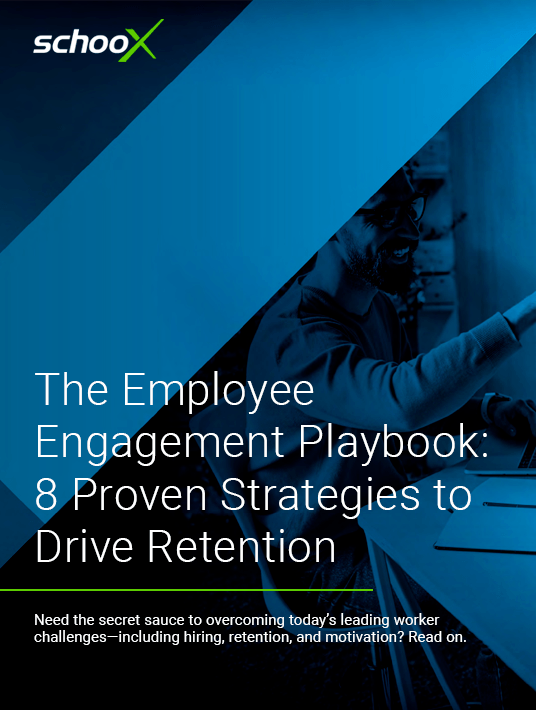Finding An LMS To Cultivate Internal Talent
If businesses want to attract, retain, and motivate modern workers, they need a comprehensive learning program enhanced by an all-inclusive LMS. If the LMS doesn’t include features that support the way today’s employees learn, engagement and results will likely fall short.

eBook Release
The Employee Engagement Playbook: 8 Proven Strategies To Drive Retention
Learn about proven employee engagement strategies and the technology needed to hire the best workers, retain them, and motivate them to perform at their highest capacity while loving their jobs.
A Critical Checklist For A Modern LMS
- Mobile-ready tools to help learners engage whenever they want and wherever they are
- Microlearning capabilities to deliver lessons in bite-size, consumable chunks in the “moment of need”
- Features to support a continuous learning culture that inspires workers to keep learning
- Adaptive learning functionality that personalizes learning so workers feel supported and stay engaged
- Social and collaborative learning tools to support workers’ optimum learning potential
- Deep reporting capabilities to quantifiably measure learning’s impact on the business
Tips To Choose The Best LMS
Where do you go from here? Take these steps to choose the best LMS to support your organization’s business goals and employee potential.
Ask Your L&D Staff For Input
Your learning program facilitators will understand what’s at stake and what they need to support your
workers’ potential. For a successful learning program, they are your frontline and must be fully on board with your decision.
Look For Essential Learning Features And Functions
An LMS can perform many actions, but not all of them have the functionality that directly supports employee potential. Look for important features and tools such as:
- Gamification
- Social learning
- Microlearning
- Mobile app at no additional cost
- Social and collaboration tools
- Deep analytics and reporting
Assess Technical Considerations
Be sure to find out if the LMS will integrate with your current technology stack, such as HR software, virtual meeting and collaboration tools, and more. Also, consider how your employees will access your learning program, such as on their mobile devices vs. desktop computers.
Request A Live Demo
There’s nothing like seeing firsthand how an LMS operates in action. Bring your team together with the LMS provider for a virtual test drive to ensure everyone agrees that the solution is the best one for your company. Check out all the features and functions and make sure it supports what you need and want for your learners.
Conclusion
Schoox comes pre-configured with over 300 skills built into the system. Businesses can also create custom learning opportunities that employees can self-select to enhance their natural talents and interests, so they can enjoy their jobs more and make plans to move up in the company. You can also evaluate skill proficiency by category or type. Employees’ skill potential can be grouped by category or type—for example, communication skills might include writing, verbal, and public speaking. Managers or admins can determine how to measure each skill by identifying a variety of proficiency levels and tying skills to specific exam questions. Last, but not least, connect employees’ skills with course exams to determine their knowledge level and skill retention.
Download the eBook The Employee Engagement Playbook: 8 Proven Strategies To Drive Retention to discover how to leverage technology to hire, retain, and inspire top talent. It features insider tips to make your existing employee development program more collaborative, learner-centered, and results-driven.

